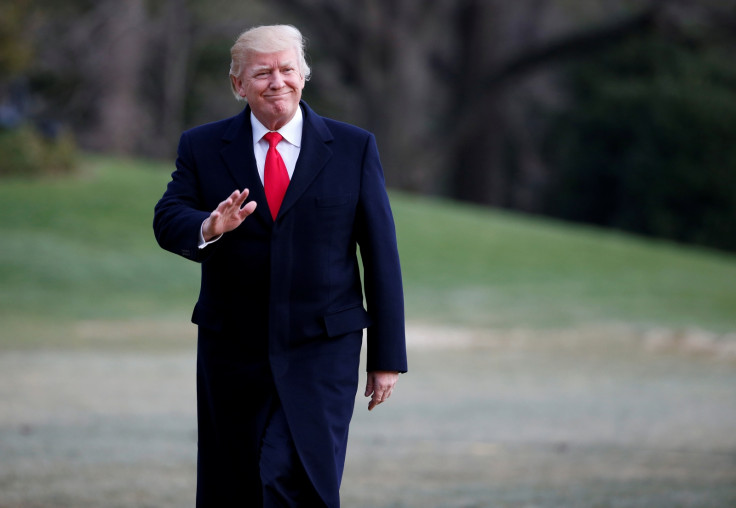Is the UK Bribery Act damaging corporate Britain?
The UKBA, aimed at preventing corruption, is well worth the price for a more ethical corporate world.

Corruption remains endemic worldwide. At least that is how I perceive things as a British Virgin Islands-based lawyer who investigates international fraud and corruption with a view to recovering the fructus sceleris ('fruits of fraud').
Developed countries like the UK have sought to 'do their bit' by drafting legislation that would be a bar to English or Scottish companies engaging in this heinous practice. The resultant legislation, the UK Bribery Act 2010 or "UKBA", is a well-drafted piece of law that is geared to preventing the greasing of palms, both in the UK and as importantly abroad.
The question I seek to address is whether the legislation is too draconian? Restated, does it adversely impact the ability of UK companies to compete with others for available contracts overseas on a disproportionate or irrational basis?
Via various forums, I have advocated that 'Grand Corruption' should be considered a crime against humanity under Article 7(1)(k) of the Rome Statute establishing the International Criminal Court.
The problem with corruption is that invariably it is the poor – the people without a voice – who suffer the most from this crime. Money that should have gone into a country's infrastructure, its hospitals and its welfare capabilities, is misdirected to the pockets of the few and away from the public purse.
Only recently, we saw Rolls Royce admit (effectively without prejudice) paying money to intermediaries in order to win contracts. The resultant fines imposed by the UK Serious Fraud Office (SFO) and the US regulator the Securities and Exchange Commission (SEC) were punitive, and in my opinion well-deserved.
Legislative mood swings
However, I sense a sea change both in the USA and the UK. It would appear that on both sides of the pond, corporate Yanks and Brits are complaining that the nature of the stringent laws and guidelines governing such 'payments', are leading to lost contracts. Perceived imbalances caused by the 'unfairness' associated with their respective anti-bribery legislation, is, companies claim, enabling the unscrupulous to dash in, pay their bung and thereby win the day.
The new Trump Administration is already flexing its corporate-sympathetic-muscles by reviewing certain aspects of the SEC's governance. It has announced a review of the autonomous powers vested in senior SEC lawyers to institute investigations and into whom. This may enable the politically-appointed SEC hierarchy to have the ultimate say as to who is investigated and for what. Some might say that this would create a lack of political independence and I concur.
In addition, the Trump Administration has also nixed the US's anti-corruption rules passed only last year, designed to ensure energy companies declared any payments made to domestic or foreign governments, to the SEC. This directive was designed to improve transparency and prevent backhanders influencing those able to make or inform contractual decisions, especially overseas where under-the-counter payments are the norm.
The White House has announced that the rule imposed "unreasonable compliance costs on American energy companies" thus placing them at risk of "losing out to foreign competition". Remember, it was the USA who led the way and seized the moral high-ground with the Foreign Corrupt Practices Act (FCPA) in 1977. So why try and dilute it now?

There would appear to be a groundswell of similar opinion radiating from the UK. This is unsurprising, as nobody wants to be fighting their corner with one hand tied behind their back (which is what directors across the UK claim to be facing when trying to win contracts in far-flung places). This is the perceived negative effect or 'cost' of the UKBA and legislation like it.
Corporate UK is not daft. When it sees the Americans reigning in the SEC and their ability to frustrate bribery, it would want the same. After all, in many instances UK and USA business go head-to-head in these contractual bidding wars. If the SEC has its enforcement-wings clipped (while UK companies remain constrained by the UKBA), the imbalance is obvious, as are the advantages to be enjoyed by the Americans over the British.
Where from here?
If America moves towards what appears to be a softer approach to 'inducing' those who award or can influence the award of foreign country tender competitions, where is the incentive for the rest of the world to enforce its anti-bribery legislation? To do so would effectively give the Americans free reign to winning contracts.
The developed world, including Britain and America, has worked hard over the last number of years to legislate against bribery and corruption. We could be on a slippery slope where countries have to turn a blind-eye towards contractual negotiations, or see their own national prosperity affected as a result.
The only way that we can stamp out corruption is if we all police our respective corporations. If one country unilaterally eases the way for its big business to return to the good old days of greasing palms, then the rest will have to consider following suit.
I fully understand that statutes such as the UKBA increase the regulatory costs to UK business, and impose restrictions upon them that may affect their ability to compete with the more unscrupulous nations. The problem is we have to make a start somewhere.
All of the nations (USA and UK included) who signed up to the United Nations Convention against Corruption (UNCAC) in 2004 are, in my opinion, morally obligated to police their respective corporate communities. Fighting corruption is just. It is rational. And it is in the long run better in yielding value for money when developing nations spend to develop.
Those who apparently wish to revert to the days when bribes of foreign officials were tax deductible are among the ethically challenged. In April 1996, the OECD issued its initial Recommendation against the Tax Deductibility of Bribes to Foreign Officials. At that time, bribes to foreign officials were still a lawful tax deduction in Australia, Austria, Belgium, France, Germany, Luxembourg, the Netherlands, Portugal, New Zealand, and Switzerland.
It has taken 20 years of hard work for the developed world to accept that bribery and corruption are repugnant morally, and wreak havoc on the legitimate economic aspirations of the developing world. Any calls to liberalise anti-corruption laws must be opposed vigorously.
All those wringing their hands in the UK (and elsewhere), who are complaining about the impact the UKBA has had on them need to remember the opening paragraph from the UNCAC foreword. It says:
"Corruption is an insidious plague that has a wide range of corrosive effects on societies. It undermines democracy and the rule of law, leads to violations of human rights, distorts markets, erodes the quality of life and allows organised crime, terrorism and other threats to human security to flourish."
We cannot allow the good work already undertaken, to be undone by condoning short-term economic and unethically sounded corporate interests.
Martin Kenney is managing partner of Martin Kenney & Co. Solicitors, a specialist investigative and asset recovery practice based in the British Virgin Islands. Kenney focuses on multi-jurisdictional fraud and grand corruption cases.
© Copyright IBTimes 2025. All rights reserved.






















